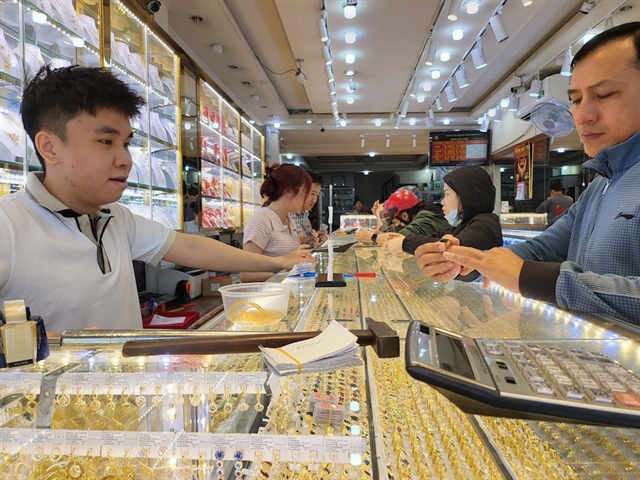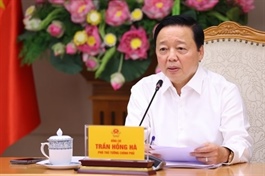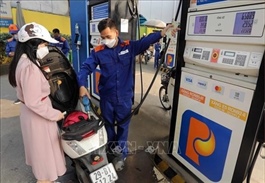Vietnamese Gov’t warns against goldization
Vietnamese Gov’t warns against goldization
In the first quarter, Vietnam saw a 12% increase in demand for gold investments and a 6% rise in consumer demand compared to the same period in 2023.
The Government in its latest resolution has mandated that steps be taken to prevent the "goldization" of the economy, which could negatively impact macroeconomic stability.

Locals buying jewelry in a gold store in Ho Chi Minh City. Photo: Khac Quang/The Hanoi Times |
Following the directive, the Government tasked the State Bank of Vietnam (SBV) with implementing both immediate and long-term measures to manage the gold market. The bank must address the significant gap between domestic and international gold prices and ensure that the market operates stably, efficiently, and transparently.
"The goldenization of the economy and its impact on macroeconomic stability should be prevented," noted the resolution.
Goldization refers to the phenomenon of precious metals overshadowing or replacing the national currency and being widely used as a form of currency. Over a decade ago, this issue became prominent, attracting investors and the public alike. Gold became a speculative asset, with people habitually converting the value of goods into gold. In 2012, Decree 24 on gold trading management was enacted to balance supply and demand and stabilize the market. However, since the beginning of this year, gold prices have been highly volatile, reaching VND92 million (US$3,617) per tael on May 10. The gap between domestic and international prices widened to VND18-20 million ($700-786).
This volatility has led many to turn to gold as a safe store of value, significantly increasing demand for the precious metal. According to the World Gold Council, in the first quarter, Vietnam saw a 12% increase in demand for gold investment and a 6% rise in consumer demand compared to the same period in 2023.
Concerned about the goldization trend, the government, and the Prime Minister have repeatedly urged ministries and agencies to find solutions to stabilize the market. After the ineffective strategy of increasing supply through gold auctions, the SBV turned to selling gold through four state-owned banks and the Saigon Jewelry Company (SJC), Vietnam’s largest gold and gold jewelry producer and distributor.
Today [June 7] marks the fifth day of direct gold sales to the public by these banks and SJC. Gold prices have dropped by about VND3 million ($118) over the past few days, with the domestic-international price gap narrowing from VND10 million ($390) on June 3, when stabilization sales began, to VND4 million ($157).
During an interpellation session at the National Assembly on June 6, Deputy Prime Minister Tran Hong Ha mentioned that, in addition to using current market stabilization tools, the Government will amend Decree 24. This is intended to ensure stable market development and prevent goldization.
The resolution also directs the Ministry of Finance and the SBV to strengthen inspection and supervision and to enforce regulations on e-invoices linked to tax authorities in gold trading.
This must be completed by June 15, it noted.
For businesses failing to comply with invoice regulations, the Government reiterated the directive to "revoke business licenses."

























